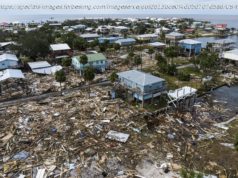Since George Washington’s time, presidents have used executive privilege to resist congressional inquiries in the name of protecting the confidentiality of their decision-making. President…
Since George Washington’s time, presidents have used executive privilege to resist congressional inquiries in the name of protecting the confidentiality of their decision-making.
President Donald Trump threatened this past week to broadly assert executive privilege to block a number of current and former aides from testifying, including some who have cooperated with special counsel Robert Mueller’s Russia investigation.
It’s a strategy that could lead to a messy, protracted legal fight, but even if the White House is eventually defeated in court, the president and his allies could have the chance to run out the clock to the 2020 election.
“This is all about delaying things. The strategy of every administration is to drag it out,” said the University of Virginia’s Saikrishna Prakash, an expert on presidential power.
Trump in recent days has complained about House Democrats stepping up their investigations in the aftermath of the special counsel’s probe, which ended last month without concluding the president colluded with Russia or obstructed justice.
“With all of this transparency, we finished ‘no collusion, no obstruction,’” Trump told reporters at the White House on Friday. “Then I get out, the first the day they’re saying, ‘Let’s do it again.’ And I said, ‘That’s enough.’”
“So, if I’m guilty of anything, it’s that I’ve been a great president and the Democrats don’t like it, which is a shame,” he said.
Executive privilege is the president’s power to keep information from the courts, Congress and the public to protect the confidentiality of the Oval Office decision-making process.
The privilege to withhold documents and prohibit aides from testifying rests on the proposition that the president has an almost unparalleled need to protect the confidentiality of candid advice that goes into presidential judgments.
There is no reference to executive privilege in the Constitution, but the Supreme Court has held that it derives from the president’s ability to carry out the duties the commander in chief holds under the Constitution.
It has become a flashpoint after Trump’s administration signaled it was considering invoking the privilege to block Congress’ attempt to subpoena former White House counsel Don McGahn, an important figure in the Mueller investigation, to appear and provide documents.






